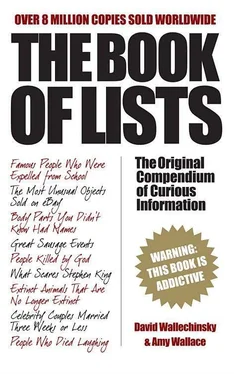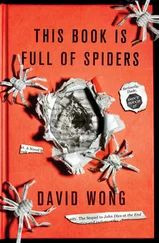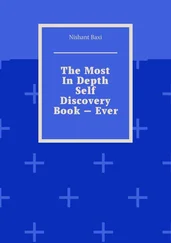In the Belly of the Beast: Letters from Prison , Jack Henry Abbott (Random House, 1981)
Abbott was the murderer who Norman Mailer befriended via correspondence, and who the writer assisted in gaining early release. Tragically Abbott than murdered again, was returned to the ‘belly of the beast’, and in due course died there. Half of this book consists of the Mailer–Abbott correspondence, the other half is an astonishing philosophic disquisition by a self-taught thinker who absorbed quantities of Marx, Schopenhauer and Nietzsche while serving time in the hardest of federal penitentiaries. I’m not saying that Abbott shapes up as a thinker, but there’s no denying the power of his critique or the extraordinary facts of its composition.
BRIAN ENO’S 18 MIND-CHANGING BOOKS
Brian Eno’s career encompasses music, writing, lecturing, teaching and the visual arts. He has released a series of critically acclaimed solo albums and has collaborated with the likes of John Cale, Nico, Robert Fripp, David Bowie and the band James. His award-winning production work spans from Gavin Bryars and Talking Heads to U2 and Laurie Anderson. A pioneer in tape-looping, electronics and other forms of sonic manipulation, with an unusual, strategic approach to music-making, his audio/visual installation work has been shown around the world. Eno has been a Visiting Professor at the Royal College of Art in London and was awarded an Honorary Doctorate in Technology from Plymouth University and Honorary Professorship by the Universität der Künste in Berlin; he is also a founder of The Long Now Foundation. His writings on politics, culture and communications have been widely published, and he is the author of A Year with Swollen Appendices published by Faber and Faber in 1996.
Brain of the Firm — Stafford Beer
The most approachable book about the self-organising nature of complex systems.
Silence — John Cage
Music as philosophy (with lots of Zen wit).
The Evolution of Cooperation — Robert Axelrod
How time changes relationships: a message of hope.
The Clock of the Long Now — Stewart Brand
Why we need to think long.
Managing the Commons — Garrett Hardin
Structural observations about shared resources.
A New Kind of Science — Stephen Wolfram
Controversial and exciting new approach to the genesis of complex systems.
Grooming, Gossip and the Evolution of Language — Robin Fox
The origins and limits of human community.
The Mystery of Capital — Hernando de Soto
Why capitalism can’t be planted just anywhere.
Labyrinths — Jorge Luis Borges
The ultimate ‘what if?’ book.
Africa: A Biography of the Continent — John Reader
The story of Africa beginning 4½ billion BC.
Animal Architecture — Karl von Frisch
One of the best ‘beauty of nature’ books, academic jaw-dropper.
Contingency, Irony and Solidarity — Richard Rorty
A great work of modern pragmatism: the antidote to Derrida.
Peter the Great — Robert K. Massie
Superb biography of a giant located somewhere between Genghis Khan, Abraham Lincoln and Joseph Stalin.
Roll Jordan Roll, The World the Slaves Built — Eugene Genovese
The unexpected richness and lasting importance of slave culture in America.
Folk Song Style and Culture — Alan Lomax
An extraordinary theory that singing style is indicative of social structure by the pioneer collector of world music.
The Selfish Gene — Richard Dawkins
Even if you think you know what this is about, it’s worth reading. The atheists’ defence.
Democracy in America — Alexis de Tocqueville
He guessed at the best of it, warned of the worst of it, and was right on both counts.
Guns, Germs and Steel by Jared Diamond
Compelling account of the physical factors shaping world history.
SIR CHRISTOPHER BLAND’S 10 BEST REFERENCE BOOKS
Sir Christopher Bland is chairman of British Telecom and former chairman of the BBC (1996–2001). He is also chairman of Canongate Books.
The best reference books are, paradoxically, those you want to read when you don’t need to look anything up. They belong by the bath or the lavatory, and are far better companions than the out-of-date magazines or the short works of unfunny humorists normally encountered in either location. With these by your side you can visit nineteenth-century London, drink Chateau Margaux, watch a test match or go to the movies, all without leaving home. Here are my favourites. The first four are essential in every household; the remainder are optional delights.
THE OXFORD ENGLISH DICTIONARY
Either the 20-volume edition or, if you are feeling cramped for space, the Shorter 2-volume version. A to Zyxt via Dvandra, Mouke, Quemadero and Sequyle.
ENCYCLOPÆDIA BRITANNICA
The oldest and most indispensable reference set. Facts historical, political, literary, cultural, scientific and technological in 32 volumes. Essential for answering children’s questions and preserving parental reputations for omniscience.
BREWER’S DICTIONARY OF PHRASE AND FABLE
Describes the origin of ‘to catch a Tartar’, ‘halcyon days’, ‘to come a cropper’, ‘the tortoise and the hare’.
THE OXFORD DICTIONARY OF QUOTATIONS
‘By necessity, by proclivity and by delight, we all quote’ — Emerson. This dictionary provides quotations from Abelard to Zola. And the Emerson extract you’ve just read.
MOGG’S CAB FARES
This nineteenth-century guide to horse-drawn bus, tram and cab fares was the constant companion of Surtees’ Soapy Sponge, who read nothing else. Sponge could transport himself to London through fancying himself ‘hailing a Turnham Green ’bus… wrangling with a conductor for charging him sixpence when there was a pennant flapping at his nose with the words “all the way for threepence”.’ upon it’ or through reciting ‘Conduit Street, Astley’s Amphitheatre, Bryanston Square, Covent Garden Theatre, Foundling Hospital, Hatton Garden…’. No contemporary use.
WISDEN
The annual bible for cricket anoraks who like to know the score. Who is the only Nobel Prize-winning author to have appeared in Wisden? This book will tell you.
BURKE’S IRISH LANDED GENTRY
Read about the lineage of the McGillicuddy of the Reeks, Captain Blood who attempted to steal the Crown Jewels from the Tower of London, the Knight of Glin and Josephine Bland, Ireland’s first woman aviator, who drank whiskey funnelled through an ear-trumpet to sustain her on her maiden flight.
HALLIWELL’S FILM GUIDE
Intelligent, opinionated, entertaining reviews of the world’s best — and worst — movies, with plots, stars, writers, directors and reliable star ratings. Who directed Casablanca, Brief Encounter, Gone with the Wind or The Beast from 40,000 Fathoms ? The answer is here.
PARKER’S WINE BUYER’S GUIDE by Robert M. Parker
If you cannot afford Chateau Lafite or Petrus, try drinking Parker’s adjectives and metaphors. ‘Sexy, open-knit, opulent… nose of cassis, cedar, spice box and minerals’, ‘a seamless personality and full body’, ‘long and lush… notes of roasted espresso, crème de cassis, smoke, new saddle leather, graphite and liquorice’. And you won’t have a hangover.
Читать дальше












